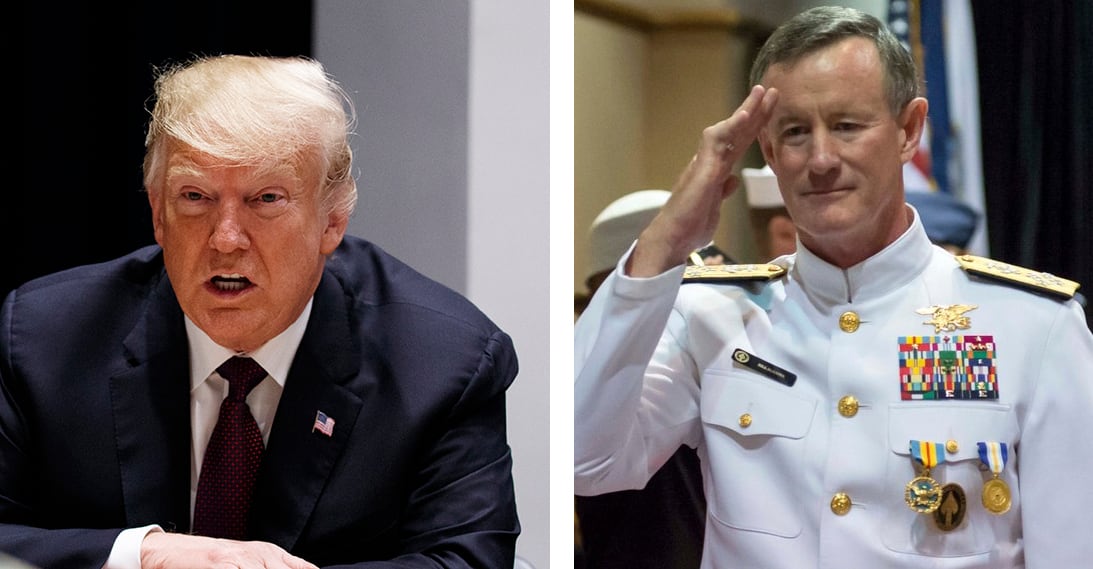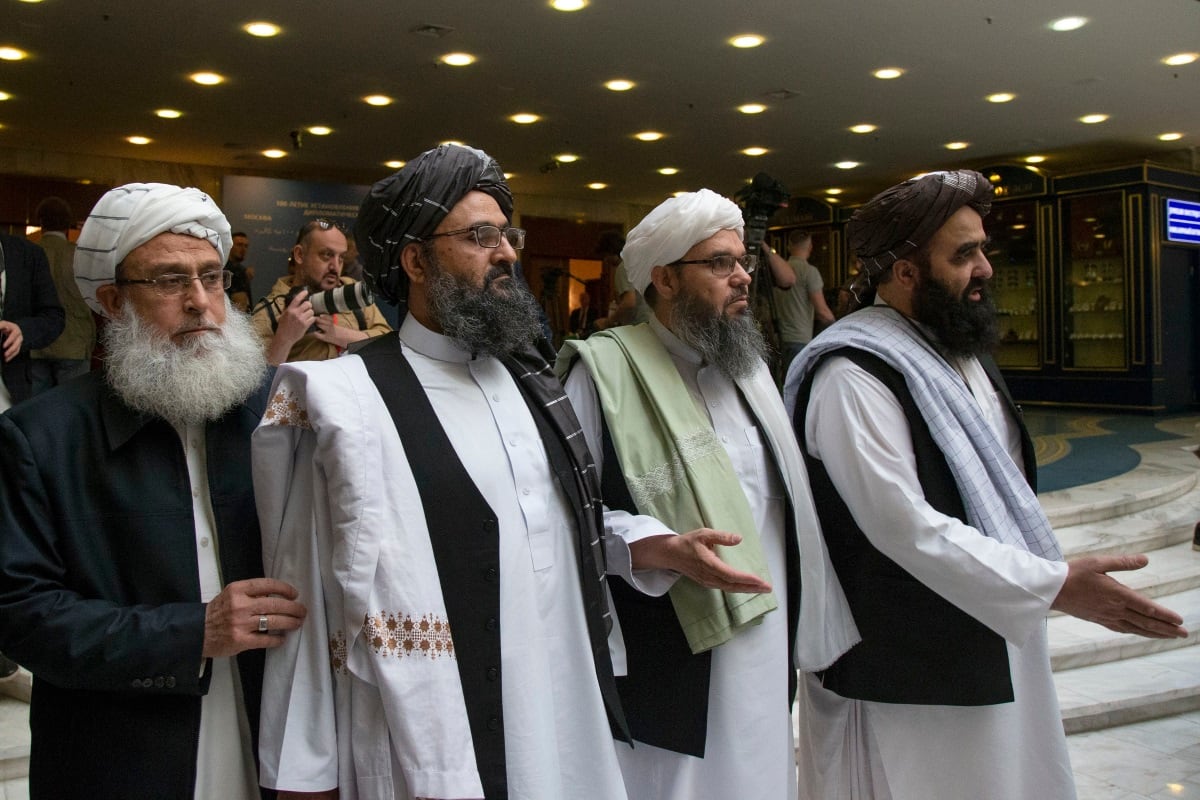A draft agreement for peace between the U.S. and the Taliban in Afghanistan got a lot of hopes up late this summer, but the former head of U.S. special operations ― most well known for overseeing the mission that ultimately took out Osama Bin Laden ― said that making concessions to the extremist group is the wrong move.
Retired Adm. Bill McRaven, now a national security professor at the University of Texas in Austin, likened negotiating with the warlords who control much of Afghanistan’s square mileage to sitting down with ISIS, in a discussion Wednesday at the New America Special Operations Forces Policy Forum in Washington.
“And maybe that’s not a good comparison,” he said. “But I do believe that if we negotiate some sort of settlement with the Taliban, and that settlement involves the withdrawal of all U.S. troops from Afghanistan, that, you know, it won’t be six months or a year before all of the blood and treasure we have put into Afghanistan will have been reversed because the Taliban will come back in and do what the Taliban do.”
Multiple international news outlets reported in late August and early September that the Taliban and U.S. diplomats had reached an interim peace agreement after nine rounds of peace talks in Qatar.
The deal fell apart just before the 18th anniversary of 9/11, when President Donald Trump canceled a secret meeting with Taliban officials at Camp David, a direct response to the Taliban’s car-bombing of an 82nd Airborne Division soldier ― which killed him and 11 others ― days before.
McRaven never agreed with the peace talks to begin with, he said.
RELATED

“And when you think, particularly of the young ladies and the progress we have made in Afghanistan with building girls’ schools and bringing women into the political process,” he said. “I mean, these are vastly important for Afghanistan and the region. I’m afraid that clock will be turned back very quickly if we negotiate some sort of settlement with the Taliban that really isn’t to our benefit or Afghanistan’s benefit.”
The interim deal was said to offer a conditional drawdown of troops if the Taliban agreed to stop targeting U.S. troops and took steps to control its districts and reject any other extremist groups who might use the country as a home base to launch an attack against the U.S.
Even if it had been a success, McRaven said, he believes U.S. involvement in Afghanistan is far from over.
“I’ve said we have to accept the fact — I think we do — that we’re going to be there for a very long time,” he said. “Is it forever? I don’t think anything’s for forever. But does that mean that we will lose more young men and women? Does that mean we’re going to spend another billions of dollars? I think it does.”
RELATED

In remarks throughout the year, Trump has lamented U.S. troops’ role as police officers and nation builders in Afghanistan. But in McRaven’s view, he said, that’s what’s necessary.
“And people have asked me before, ‘Well, we can’t be the policemen of the world.' The hell we can’t,” he said. “I think this is what American leadership is about. You have to recognize that our interests are no longer just in the borders of the United States.”
Afghanistan is a country with a long and legendary history of instability, ripe with opportunity for another terrorist group to move in and train freely, the way al-Qaida did before 9/11.
“I think we have an obligation to lead. Because if we don’t, who’s going to lead? China? Russia? The world wants us to lead,” he said. “If we back out of Afghanistan and we don’t show the leadership necessary to keep Afghanistan solvent, if you will, I think that’ll be a mistake.”
The other issue, he added, is that after 18 years, the reason for being there has changed. First it was to hunt down al-Qaida. Then it was to beat back the Taliban, who had harbored them.
But then, over that time, the U.S. helped Afghanistan get a democratic government off the ground, and train its security forces to defend themselves ― an undertaking that experts have said they aren’t ready to do on their own.
“I think we need to honor that relationship,” he said.
And, the likelihood that troops can stay behind as an insurance policy, in a deal that the Taliban will be on board with, sounds far-fetched.
“So, is there an opportunity for us to negotiate with the Taliban, get them to negotiate something that is a win-win? I don’t know. I have my doubts on that,” he said.
Meghann Myers is the Pentagon bureau chief at Military Times. She covers operations, policy, personnel, leadership and other issues affecting service members.





